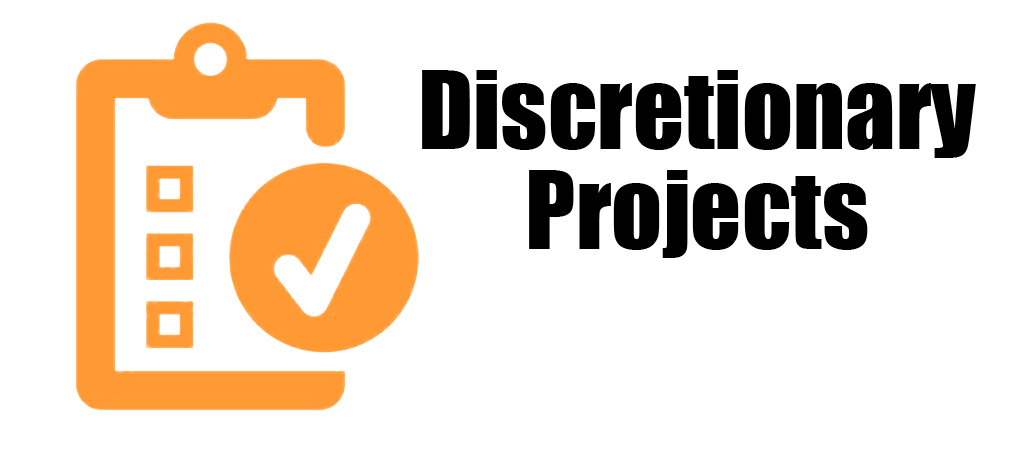
- Variance Requests
- Conditional Use Permits
- Home Occupations with outside employees, multiple clients per day
- Appeals of Administrative Decisions
This website is intended for general information about our planning process – individual projects may vary in terms of requirements and approvals.
Please contact planning staff at (360) 685-2379 to get advice specific to your project.

Pre-Application Meeting (Encouraged)
The City encourages applicants to meet with City staff before they complete their land use/development application to help identify potential challenging areas and streamline the process.
Please call Associate Planner Haylie Miller at (360) 685-2368 to set up an appointment.
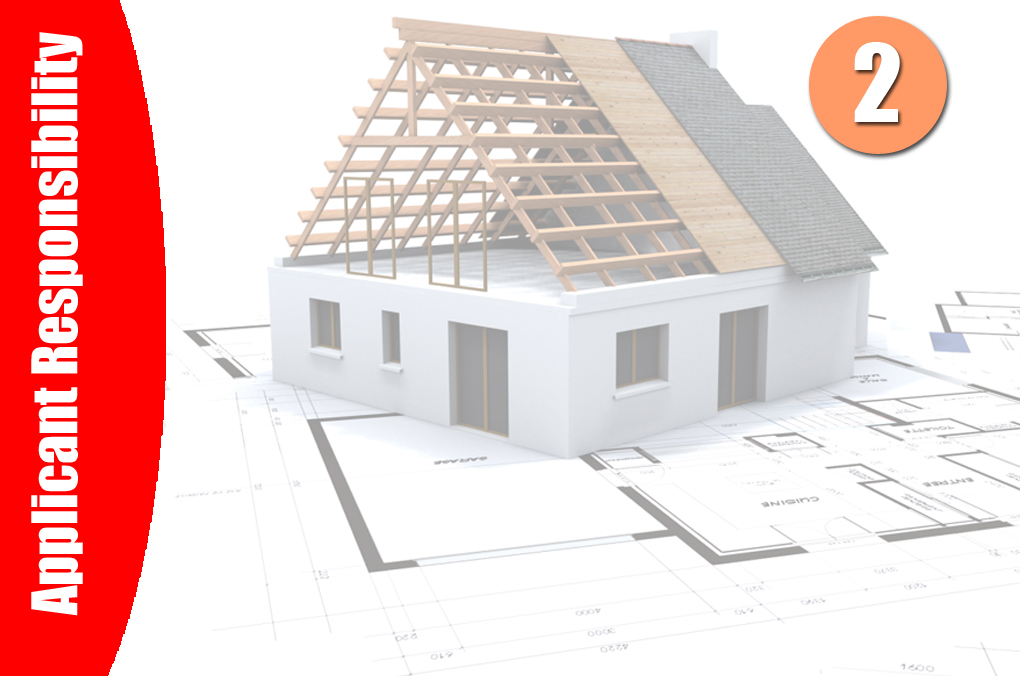
Land Use/Development Application
The next step is to submit a Land Use/Development Application. All of our applications are handled through our Online Permit Center.
The City relies on applicants to provide as much information on their project, as early as possible. This way, City staff can review the proposal against adopted regulations, and to identify those area(s) where the application may be inconsistent with adopted rules.
Depending upon the application, this information from range from survey-quality drawings portraying a subdivision to conceptual design for stormwater facilities and water and sewer lines.
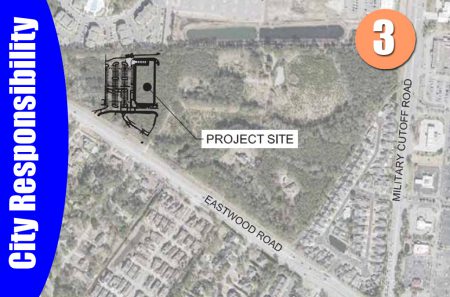
Technical Review Committee

Staff Report Developed
Following the Technical Review Committee (TRC) meeting, City Staff develops a staff report which includes an overall City recommendation, proposed conditions, and attachments containing information necessary for the Hearing Examiner to complete their review. This staff report is distributed to the applicant for comment, and once finalized is released to the Hearing Examiner and general public.
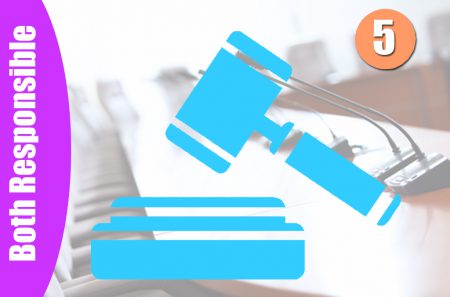
Public Hearing
The Ferndale Hearing Examiner, which is essentially a land use judge, holds a public hearing at which City staff, the applicant, and members of the public may speak on issues related to the proposal. In some cases the Hearing Examiner may ask clarifying questions and/or may request additional information. Once all information has been provided, the Hearing Examiner closes the public hearing. The Hearing Examiner typically issues their decision within two weeks of the hearing.
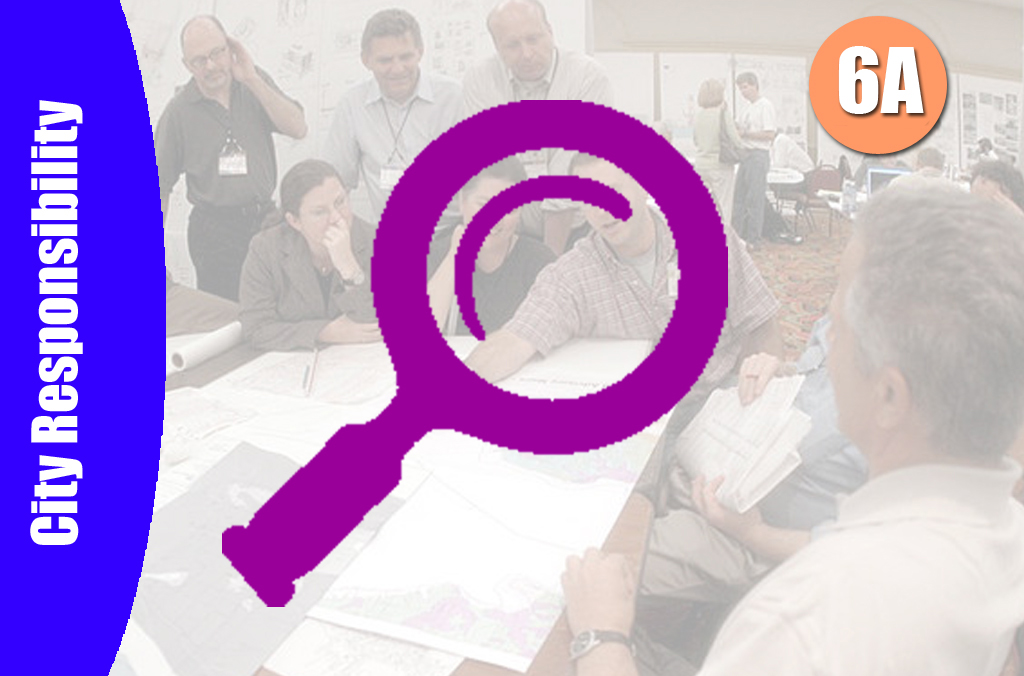
Planning Review
Following the Hearing Examiner’s decision, City staff complete review of the applicant’s proposal. In some cases the Hearing Examiner will have required modifications to the original proposals, in which case City review may be suspended until revisions are submitted by the applicant.
Planning staff reviews applications to ensure that the proposed land use meets the requirements of the area or zone. Planners check for compliance with setback requirements, height limitations, architectural design, landscaping, parking, and more. Planning staff is also responsible for working directly with applicants to schedule public hearings, create staff reports, post notices, and to determine impact and connection fees.
The planning staff is typically the first stop in the development process and can provide general responses to the majority of development questions – or identify appropriate City staff for more-specific answers. Please also see Ferndale Municipal Code Title 18 (Zoning) for more information.
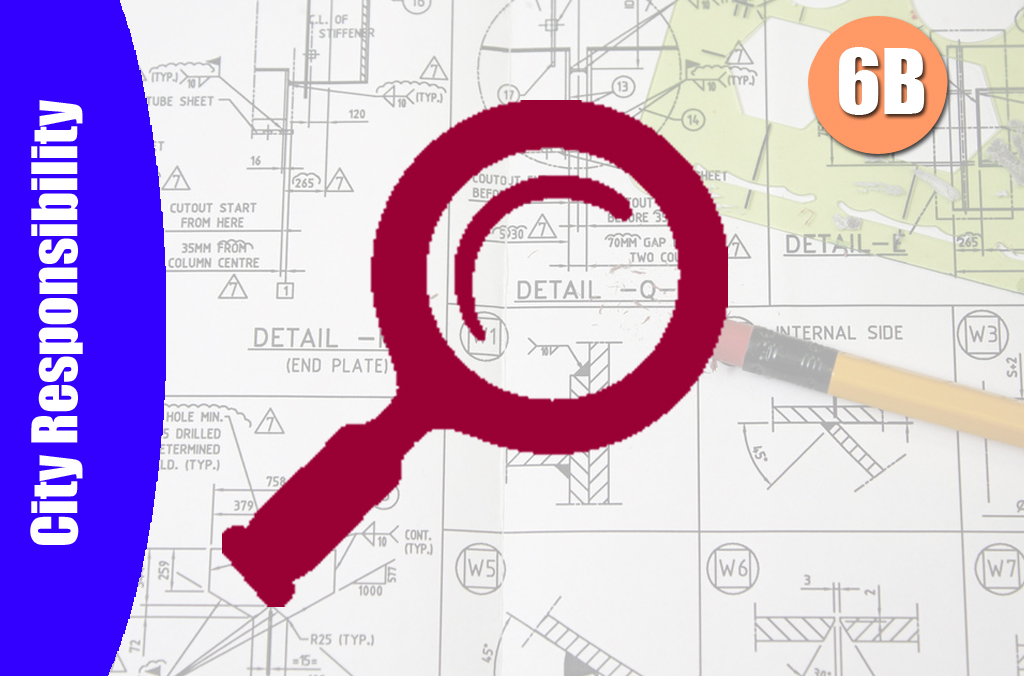
Engineering Review
The City’s engineering staff is responsible for reviewing and inspecting “civil plans,” which usually consists of installed infrastructure such as roads, water and sewer lines, the construction of stormwater facilities, and other parts of the project that will eventually be maintained by the City, or which may have a direct impact on the City. The majority of reviews conducted by the City’s Engineering Staff rely upon documents created by a Washington State licensed engineer that are consistent with adopted City regulations. Please see Ferndale Municipal Code Title 19 (Ferndale Development Standards) for more information.
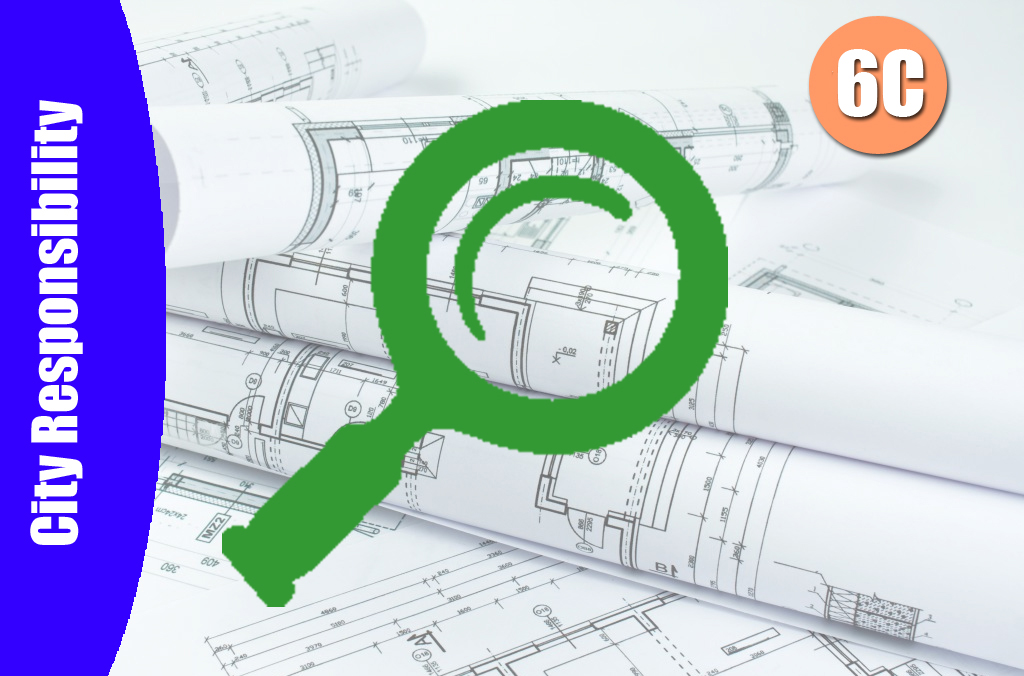
Building Review
The City utilizes the same building codes (the International Building Codes) as most cities and towns in the United States. The City’s building staff reviews (and subsequently inspects) building plans submitted by the applicant against these adopted regulations, which are recognized as the minimum standards necessary to maintain life and safety in a building.
While non-professionals can develop their own building plans for many buildings if those buildings meet the precise requirements of the building codes, the majority of applicants choose to hire a professional architect or structural engineer licensed by the State of Washington in order to ensure consistency with building codes.
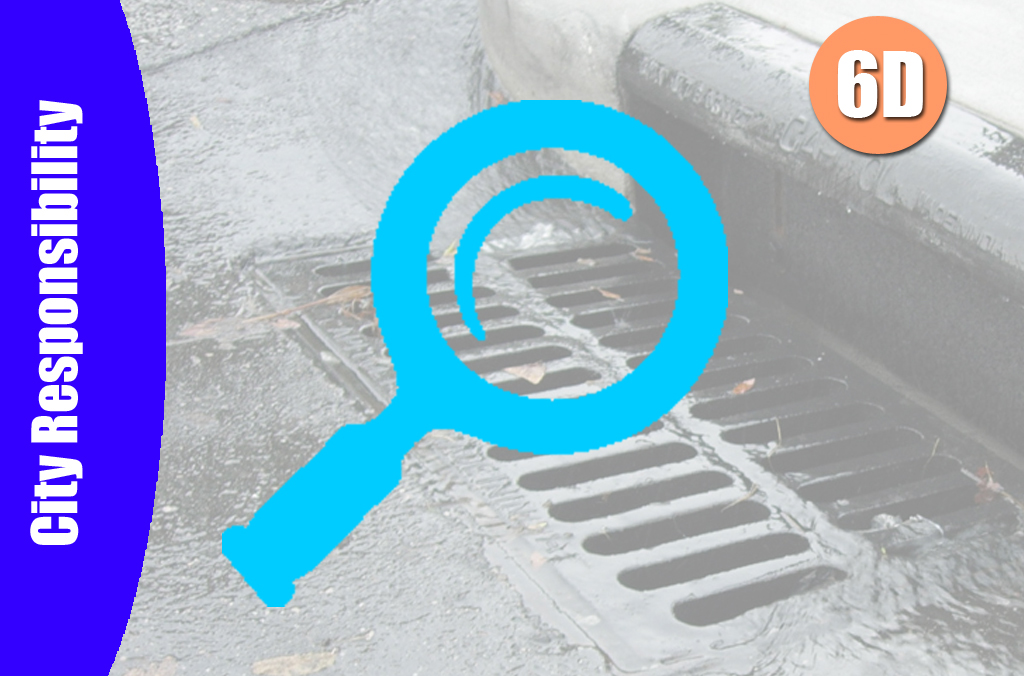
Stormwater Review
Development is likely to change the way that stormwater flows from or across a piece of property, and the City is required to review these changes to ensure that the environment and other properties are protected as a result of development. The City’s stormwater staff, working closely with Planning and Engineering Staff, as well as the City’s Engineering Consultant, reviews and inspects stormwater proposals associated with development applications.
The City maintains a Municipal Discharge Permit issued by the Washington State Department of Ecology, and is responsible for reviewing all private and public development in the City to ensure compliance with State requirements – in this case the 2014 Ecology Stormwater Manual. The City and its consultant rely upon proposals and analysis generated by Washington State licensed engineers.
For more information, please explore our Stormwater page.
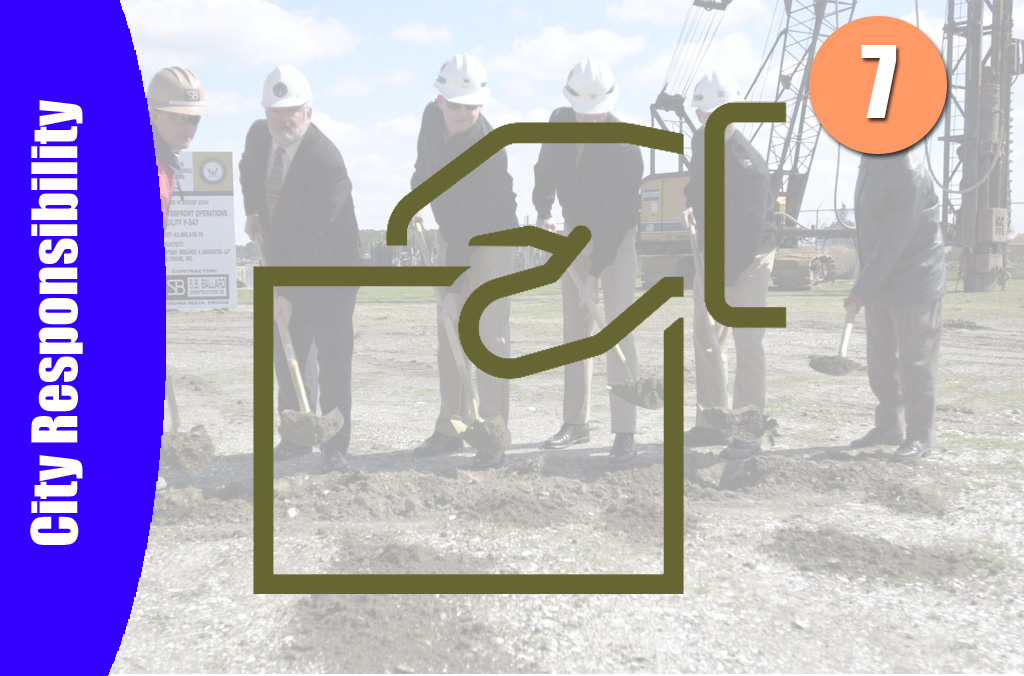
Permits Issued
Depending on the specific project proposed there may be one or more permits that are required to begin your work. In some cases, this may alter the review process slightly.
Except for very minor improvements (less than 50 cubic yards of dirt) when no infrastructure is being installed, the vast majority of improvements will require a Land Disturbance Permit. However, the construction of single family residences within existing subdivisions is exempt from Land Disturbance requirements. Prior to issuance of a Land Disturbance Permit, the City will typically hold a “pre-construction meeting” to review conditions and to discuss the planned construction strategy.
In order to build the structure, a Building Permit will be required.
If your project requires any work within the public right of way or extending/ modifying City utilities, an Encroachment Permit will be required. Of the three permits, it is the encroachment permit that is often forgotten by applicants.

Construction Begins
Once permits are issued, the applicant is allowed to start making physical improvements to their property. Depending on the time of year and scope of work, the City may delay issuance of one or more permits until such time as other work, such as the installation of infrastructure, has been completed.
These limitations will typically be discussed at the pre-construction meeting associated with a Land Disturbance Permit.
In all cases, it is the responsibility of the applicant to ensure that their work is in compliance with the permits that have been issued – and to let the City know as early as possible if there are changes.
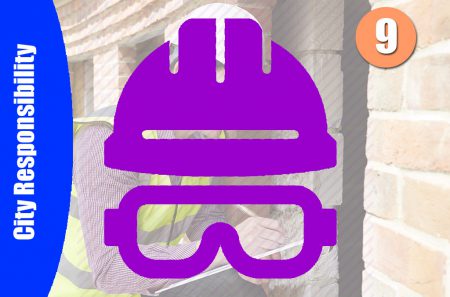
Inspections
During the construction process, the applicant is expected to follow the conditions of each permit as they relate to inspections.
Whereas the Building Permit will typically identify specific points when inspections must occur, the Land Disturbance Permit may require ongoing inspections.
The Encroachment Permit may vary between the two types of inspection requirements, depending upon the nature of encroachment. The applicant is also responsible for informing City inspectors of their progress, as well as any anticipated deviations from the construction schedule, timelines, or compliance with plans. Failure to maintain contact with the City via inspections and/or progress reports may result in fines, Stop Work Orders, or even suspension or cancellation of the permit(s).
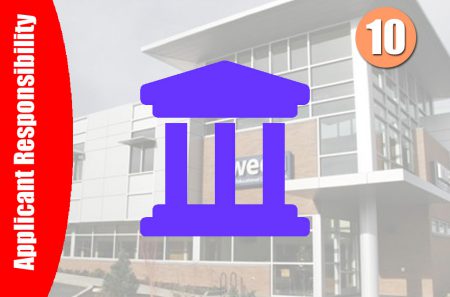
Bond
For commercial and multifamily developments, the City may authorize or require that a bond or other financial guarantee be put in place to either complete non-life safety/critical elements of construction, and/or to guarantee that certain elements are maintained in good condition.
Frequently, applicants will seek to complete work necessary to open a business or rent a building based on a self-imposed deadline for completion. Not all elements of development can be bonded for, and the City seeks to understand the applicant’s time limits for completion as early as possible so that appropriate steps and information can be prepared.
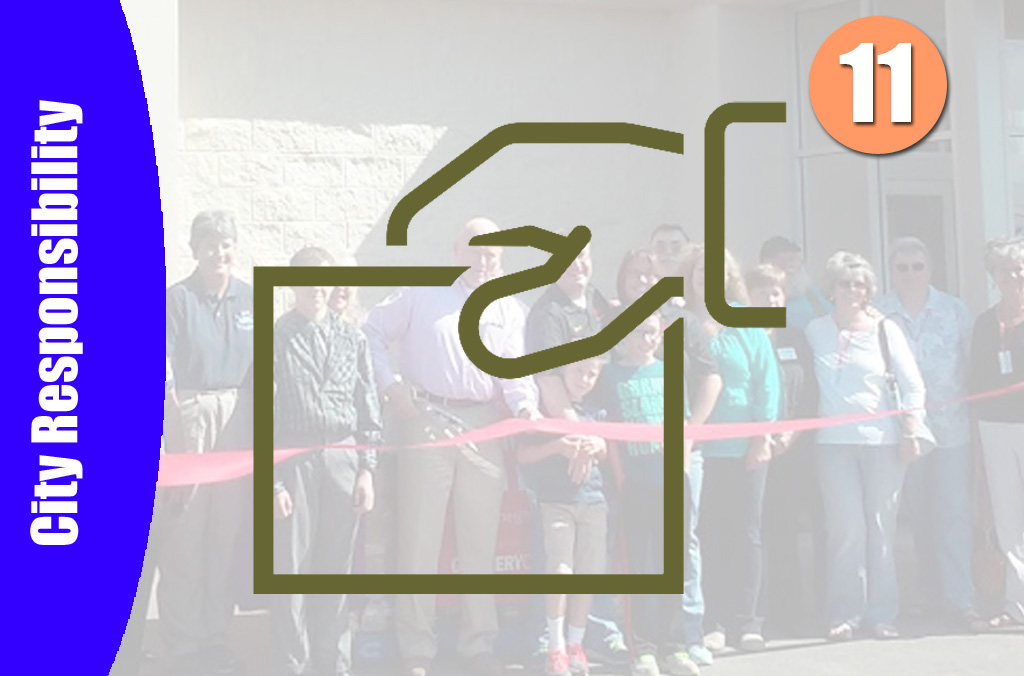
Issuance of Occupancy Permit
Single family construction, including renovations and outbuildings such as garages are deemed complete upon final building inspection, and no separate Certificate of Occupancy is required. Commercial and multifamily development requires a Certificate of Occupancy, which is issued only when all elements of the development are complete, or bonded for.
The most common form of occupancy is a Final Certificate of Occupancy, though Temporary Certificates of Occupancy can be considered on a case-by-case basis.
If you are a business owner proposing to locate a business in Ferndale for the first time, no occupancy permits may be issued until a business license is issued.
